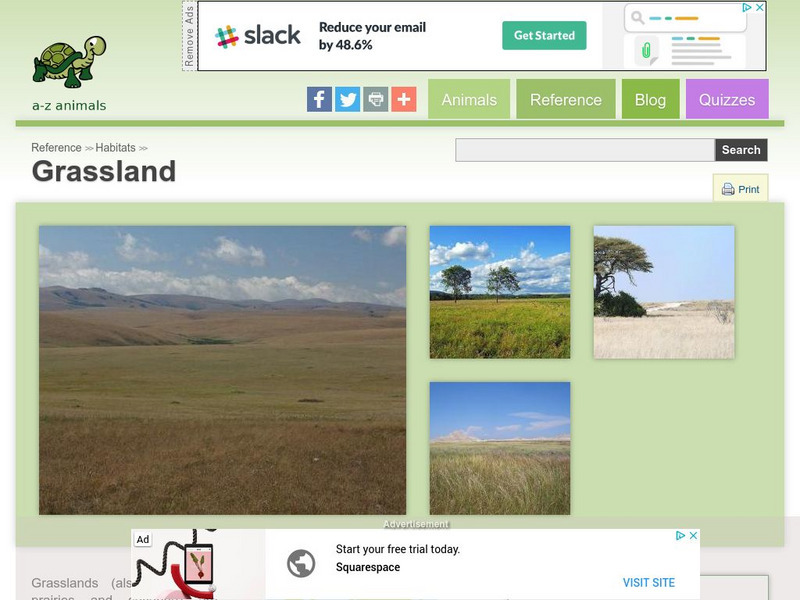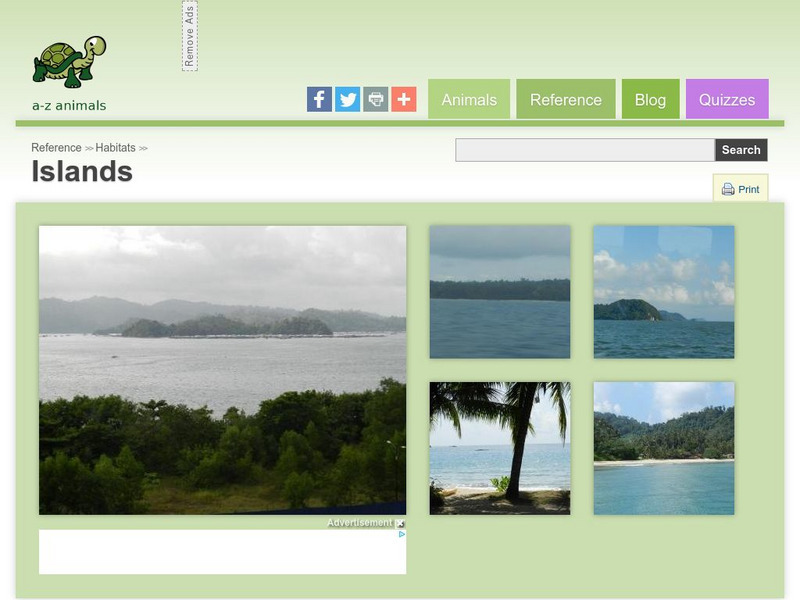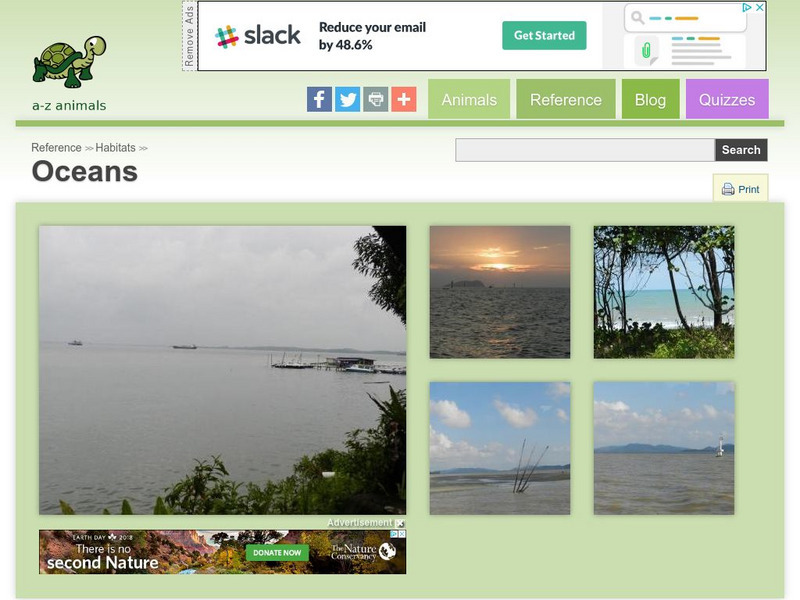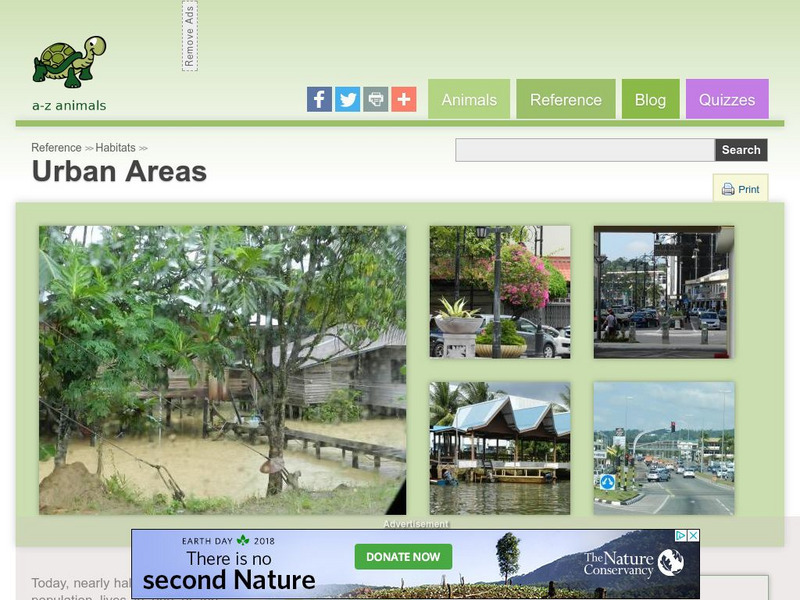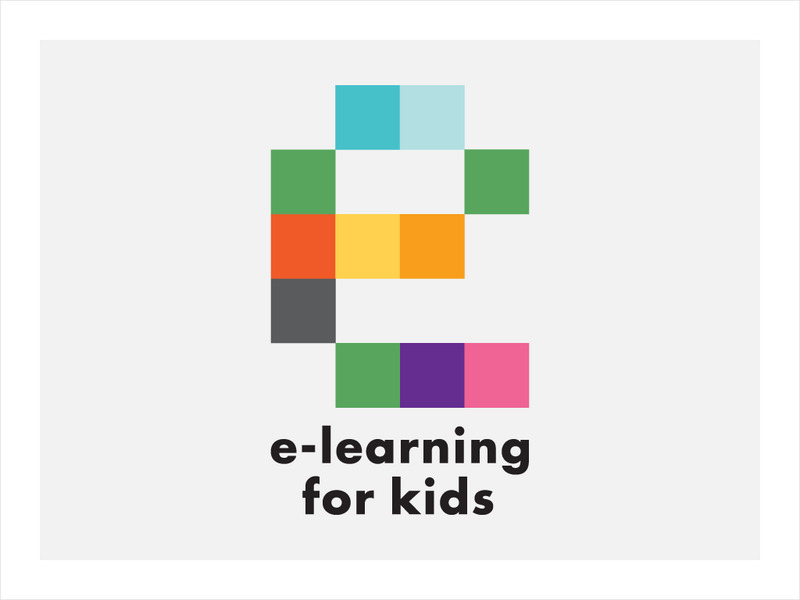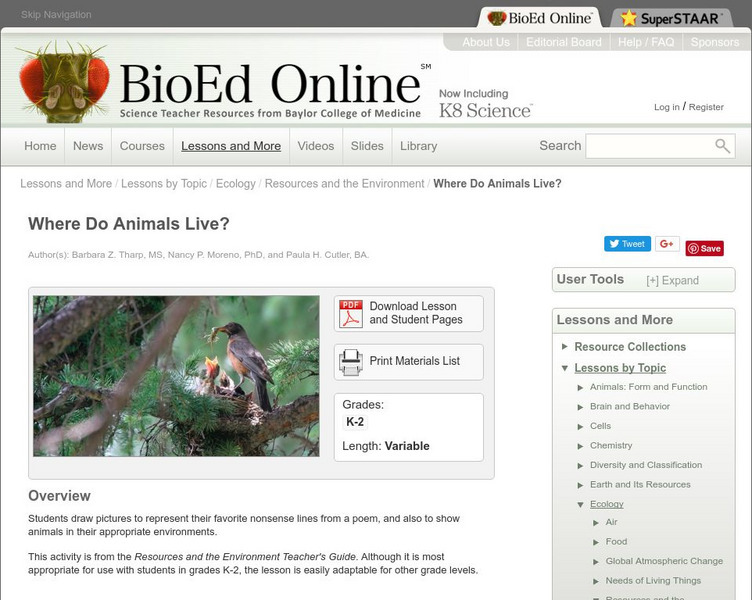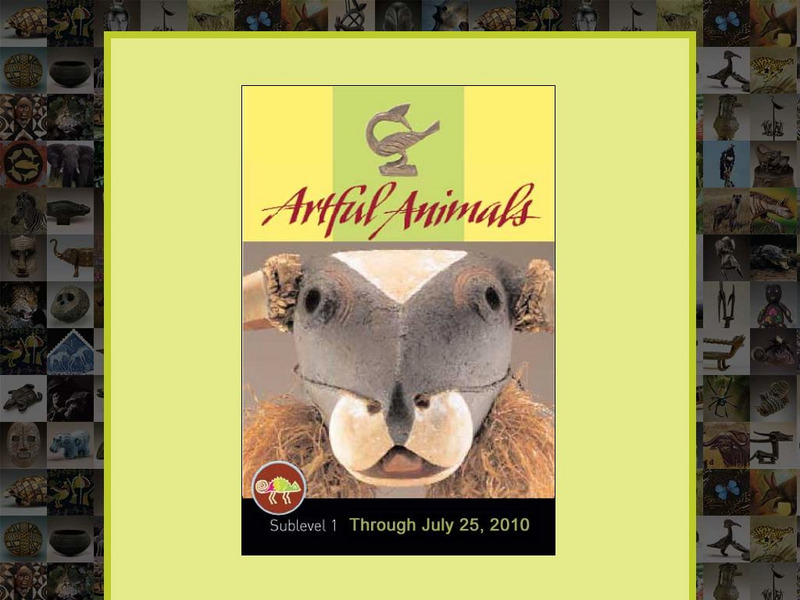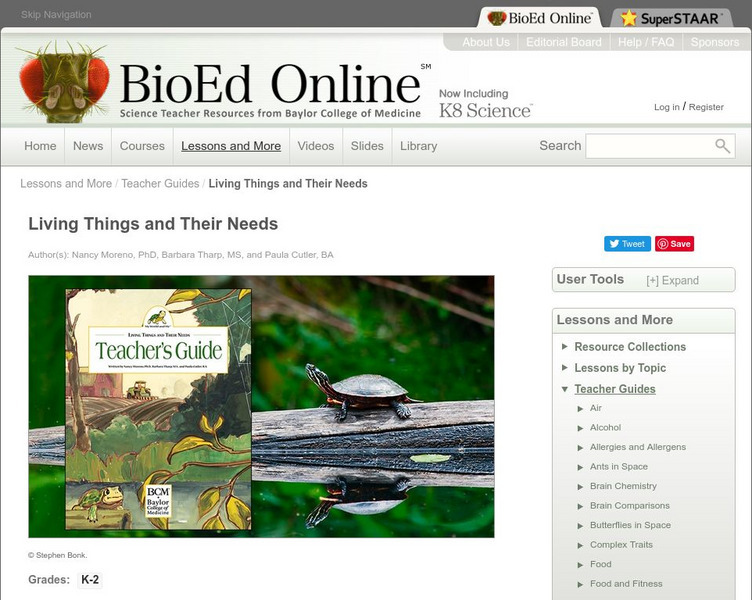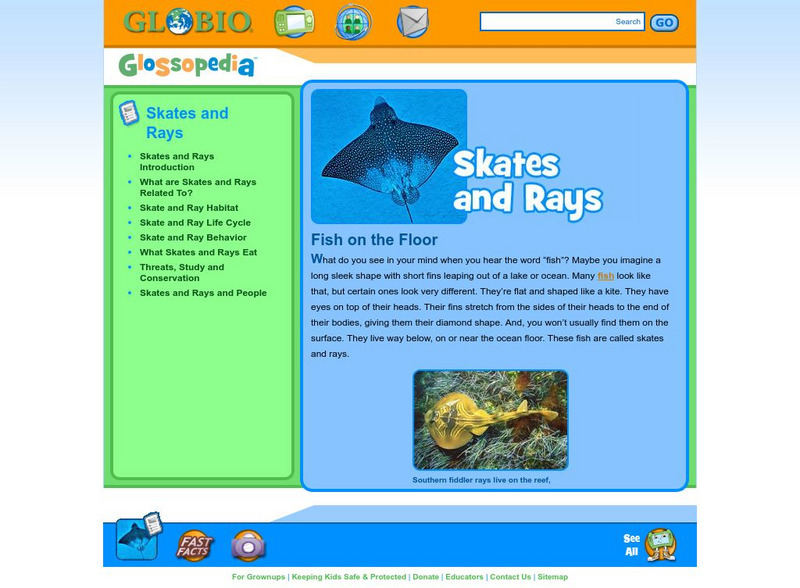Hi, what do you want to do?
A-Z Animals
A Z Animals: Reference: Habitats: Freshwater
Learn about the plants, animals, and other characteristics of some freshwater ecosystems.
A-Z Animals
A Z Animals: Reference: Habitats: Swamps and Wetlands
Learn about the plants, animals, and other characteristics of some wetland ecosystems.
Friends of Algonquin Park
The Science Behind Algonquin's Animals: Teacher Resources
Teacher .pdf resources may be downloaded and include background reading and lesson plans to assist teachers with integrating wildlife research into the classroom.
Friends of Algonquin Park
The Science Behind Algonquin's Animals: Teacher Resources
Teacher .pdf resources may be downloaded and include background reading and lesson plans to assist teachers with integrating wildlife research into the classroom.
A-Z Animals
A Z Animals: Reference: Habitats
This entry identifies defining characteristics of animal habitats, including chemical cycles, biodiversity and distribution.
A-Z Animals
A Z Animals: Reference: Habitats: Mountains
Find out about the plant and animal life in different types of mountain habitats.
A-Z Animals
A Z Animals: Reference: Habitats: Grassland
Find out about the plant and animal interactions within the grassland ecosystem.
A-Z Animals
A Z Animals: Reference: Habitats: Islands
Learn about the island ecosystem, and how its geography affects the life on it.
A-Z Animals
A Z Animals: Reference: Habitats: Oceans
Learn about the ocean ecosystem, and how its characteristics affect the life within it.
A-Z Animals
A Z Animals: Reference: Habitats: Polar Regions
Learn about the polar ecosystem, and how its geography affects the life on it.
A-Z Animals
A Z Animals: Reference: Habitats: Rainforest
Find out about the plant and animal interactions within the rainforest ecosystem.
A-Z Animals
A Z Animals: Reference: Habitats: Temperate Forest
Learn about temperate climate ecosystems, and how the geography affects the life within them.
A-Z Animals
A Z Animals: Reference: Habitats: Urban Areas
Find out how urban ecosystems sustain plant life and wildlife.
E-learning for Kids
E Learning for Kids: Science: Easter Island: What Can We Find in a Pond?
Explore Easter Island in this module to learn about the animals and their habitats.
PBS
Pbs: Nature: Animals and People: Who's Behaving Badly?
Explore the great variety of animal behaviors by observing them in their natural habitats, and examine the relationship between people, animals and the environment.
Alabama Learning Exchange
Alex: Hush Down Under
During this lesson students will listen to a read-aloud of Possum Magic, by Mem Fox. Students will then help the teacher search the Internet for Australian connections (animals and habitats). The students will write in their journals...
BioEd Online
Bio Ed Online: Where Do Animals Live?
In this lesson plan students listen and participate by filling in missing words as the teacher reads a silly poem about places where animals might live. Students are required to draw pictures representing both their favorite nonsense...
PBS
Wgbh: Peep and the Big Wild World: Games: Animal House Hunt
Cleverly animated matching game asks players to match animals to their homes. [All instructions and prompts are voiced, not written, making this an excellent resource for young children and English language learners who need practice in...
National Geographic Kids
National Geographic Kids: Animals
National Geographic site offers interesting facts on some of your favorite animals. Offers photos, postcards, fun facts and more.
ClassFlow
Class Flow: Animals and Their Homes
[Free Registration/Login Required] This flipchart was designed to help students in grades K-2 identify animals and where they live.
Smithsonian Institution
National Museum of African Art: Artful Animals
African artists commonly base their work on animals observed in their natural habitats. Artful Animals lets you view African art that takes animals as its subject and inspiration. Learn about animals as symbols in African art, the beauty...
The National Gallery (UK)
National Gallery, London: Ite: Learning Ideas and Outcomes: Subject Focus
This extensive lesson plan uses the painting 'A View of Het Steen in the Early Morning' as a starting point to learning in science. Students will use the work by Reubens to learn about a variety of animals and their habitats.
BioEd Online
Bio Ed Online: Living Things and Their Needs Teacher's Guide
This is a free downloadable teacher's guide (PDF) to teach young children (grades K-2) about living things and their needs.
Globio
Glossopedia: Skates and Rays
There are more than five hundred different species of skates and rays in our oceans. Scientists say that these fish are closely related to sharks, sharing a common ancestor from around 400 million years ago. This article provides an...











